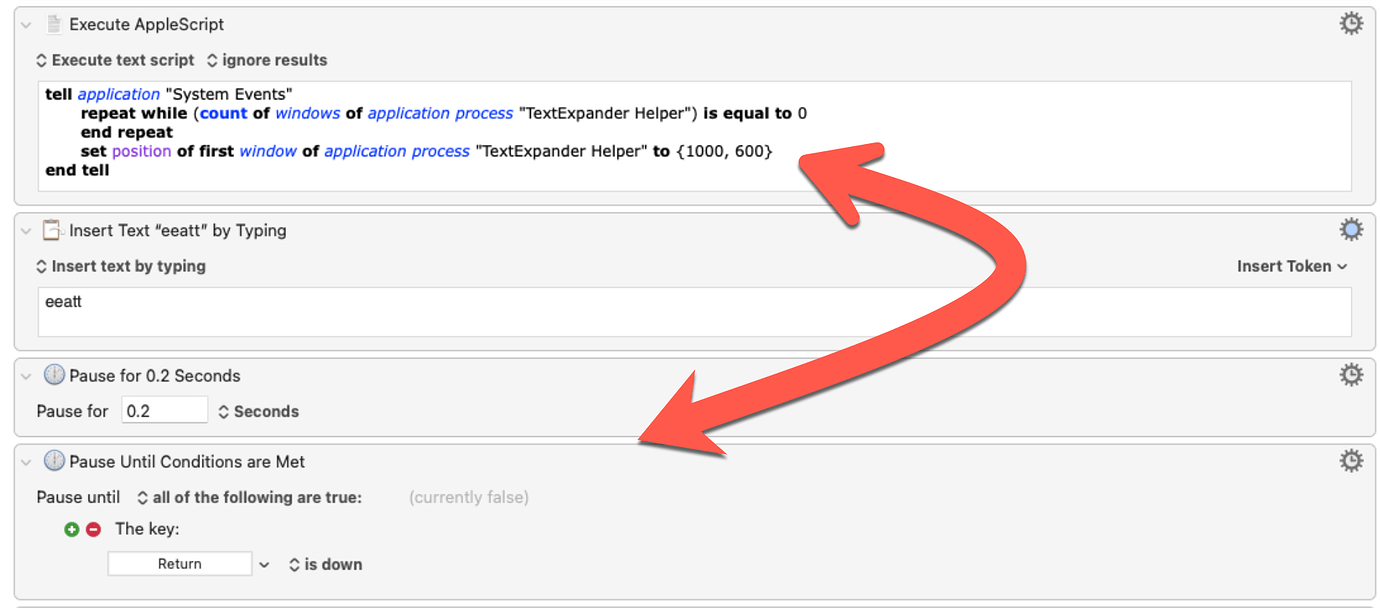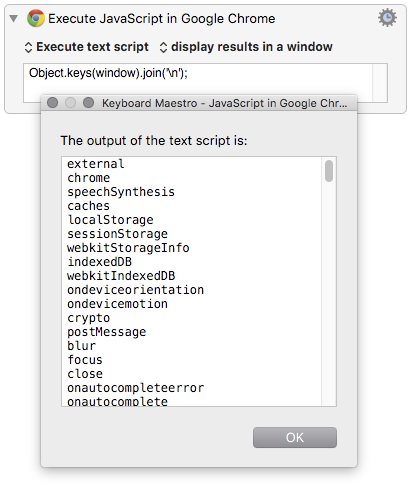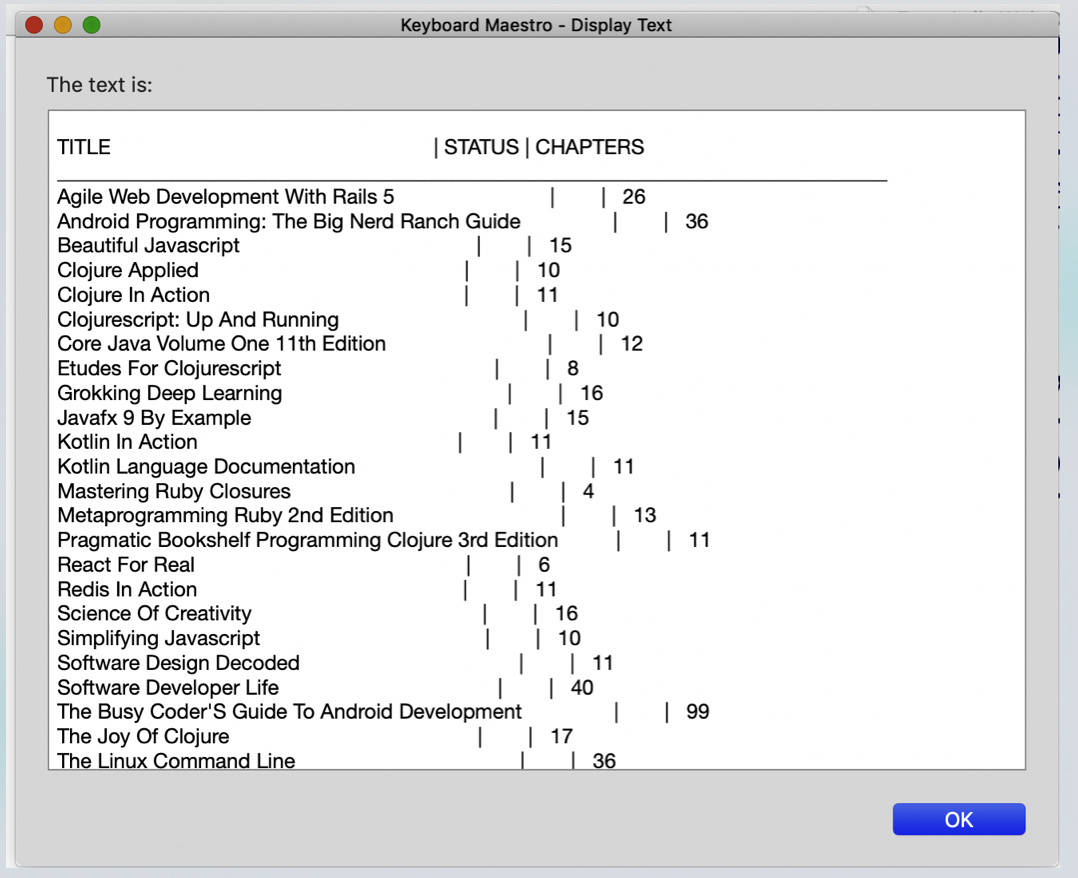
So you don’t need to set it in every Macro. Once the ENV_PATH variable is set, it will remain in your Keyboard Maestro variable until/unless you delete it, and remain available to every Execute a Shell Script action that you might use in the future. You can set this Variable manually in the Variable Preferences Panel in Keyboard Maestro. So if you set your path in the ENV_PATH Keyboard Maestro variable, the PATH environment variable will be set from it. Set ENV_PATH Keyboard Maestro variable prior to the Execute Shell Script Action.Īny Keyboard Maestro variable that starts with ENV_ will automatically be set as the as the corresponding environment variable (without the usual KMVAR_ prefix). Note that xargs has a limit to the number of arguments it will pass, so for large numbers of arguments it may run the command multiple times with subsets of the arguments - read the xargs man page for more details. The tr command will replace \r or \n line endings with a nul character, and the xargs -0 command will read that, split the arguments at the nul character, and pass them to the specified command (in this case ls -l. Snippet.bash echo " $KMVAR_files" | tr '\r\n' '\0' | xargs -0 ls -l If possible, use seperate variables for seperate parameters, but if you cannot do that (for example you have a list of paths), store them as seperate lines in a variable (without any quoting or backslashes) and use a command like: And so emactsclient will receive the array:įor the reverse problem, where you have a variable that contains multiple parameters, note that you cannot use quotes within a variable - by the time the shell is expanding variables, it has already processed quotes and will not do so again so quotes will just be regular characters passed to the target command and almost certainly result in errors. Within single quoted strings, they remain as the text $KMVAR_SafariURL (unchanged). This will not work because bash only expands variables within double-quoted strings. Snippet.bash emacsclient -e '(w3m-browse-url "$KMVAR_SafariURL")' For example, perhaps you want a command like this: Now a further complication happens when you want to send a string containing double quotes and variables to a parameter.

Snippet.bash defaults write "/Users/me/Library/Application Support/Witch/Settings" " $KMVAR_Setting" - " $KMVAR_Type" " $KMVAR_Value" So instead, perhaps set one variable to the setting name, and one variable to the type and one variable to the value, and then use a command like this: So variables that are meant to be a single parameter should be surrounded by double quotes in the line, but not contain quotes in the variable, and generally you do not want to pass multiple parameters within a single parameter. So the problem is that the word-breaking, variable substitution, de-quoting and de-backslash is all happening at as the line is processed by bash, after which you are left with quotes from within variable substitution, but they no longer have any meaning, they are just characters. It is bash that has processed the variable substitution for $KMVAR_witchPref, split the line in to seven parts, processed the backslash in “Application\ Support” and then executed the defaults tool with the seven parts as arguments (the command itself is the 0th argument, normally mostly ignored by tools). The text typed in the most recently executed Paste by Name action The text typed in the most recently executed Prompt With List action The window ID of the most recently displayed Keyboard Maestro Engine window The success or failure of the immediate past action

The value associated with how the parent macro was triggered The trigger description of the trigger that started the parent macro

The type of the trigger that started the parent macro The unixtime the parent macro started executing The UUID of the macro group containing the executing macro The name of the macro group containing the executing macro

The UUID of the macro group containing the parent executing macro The name of the macro group containing the parent executing macro


 0 kommentar(er)
0 kommentar(er)
